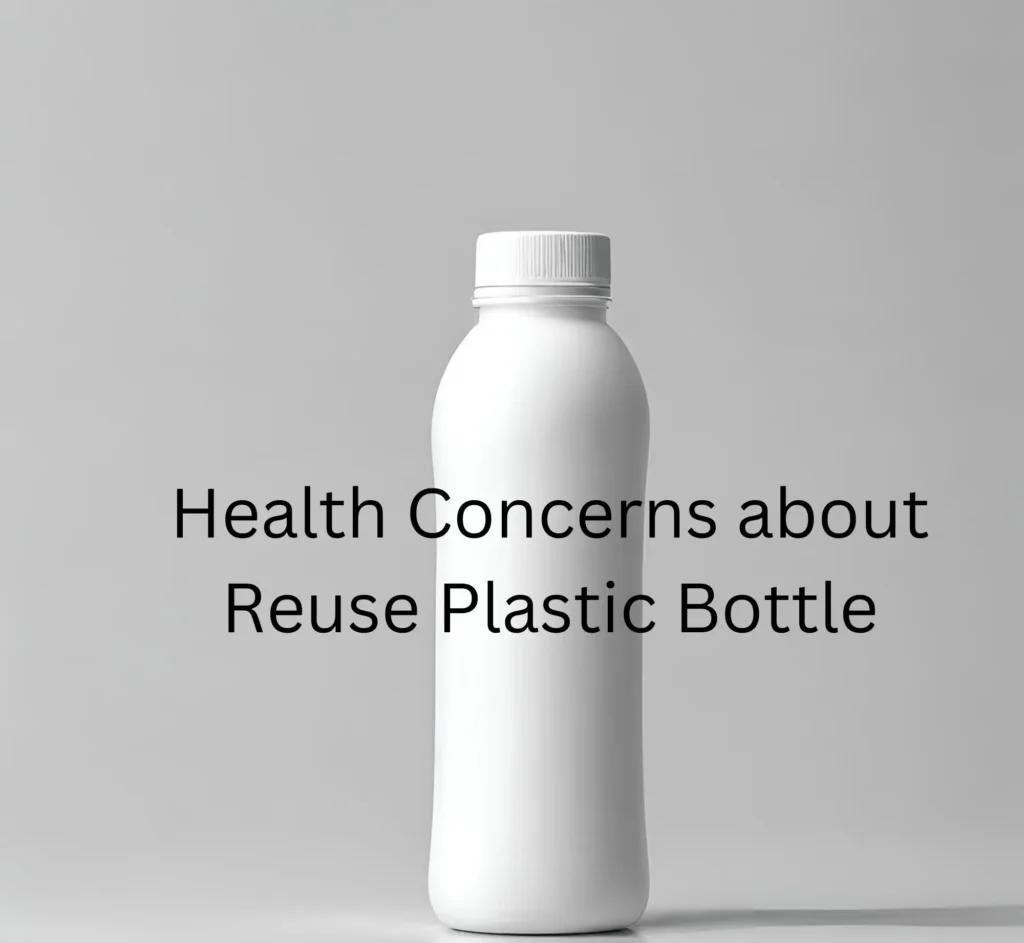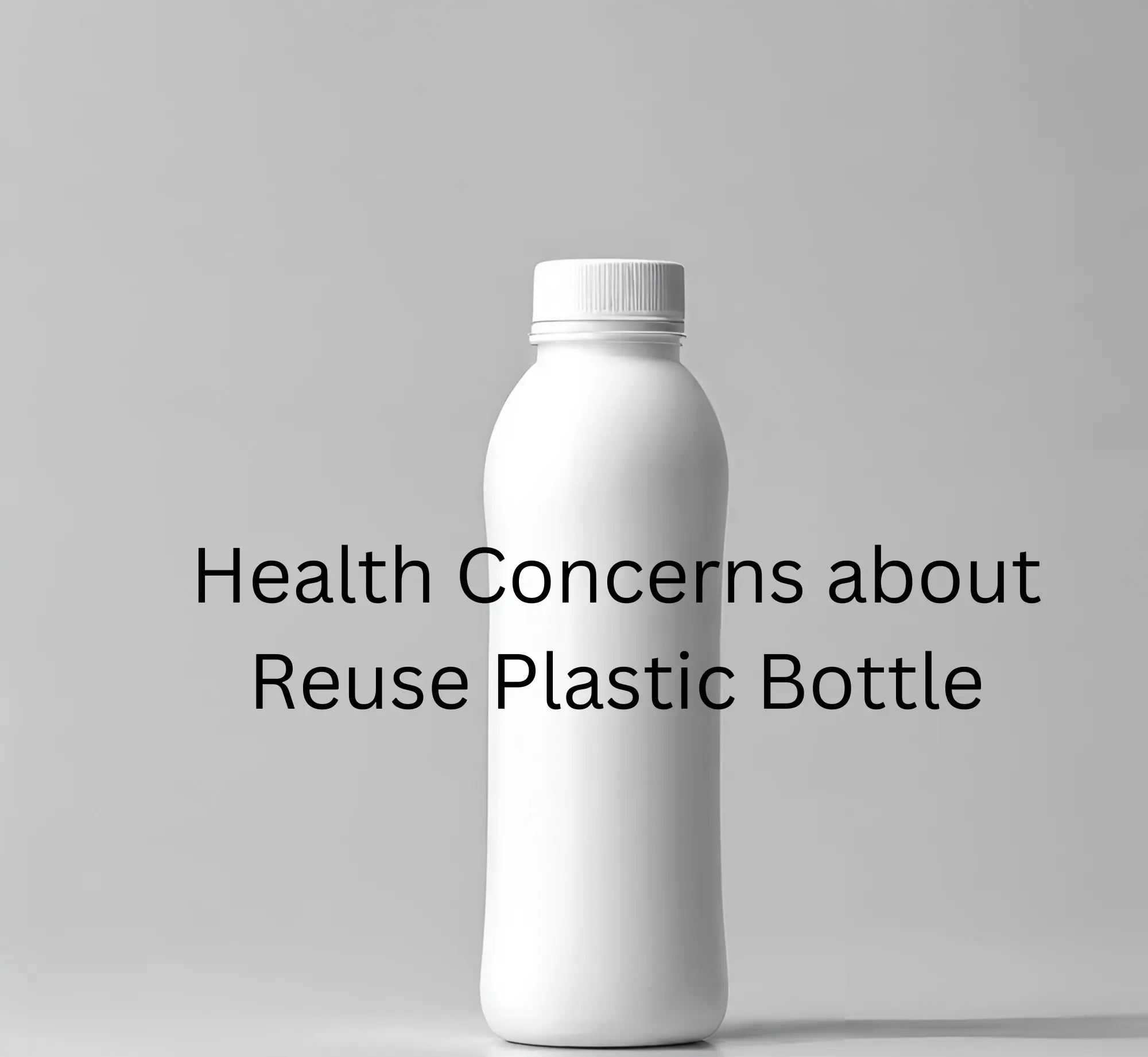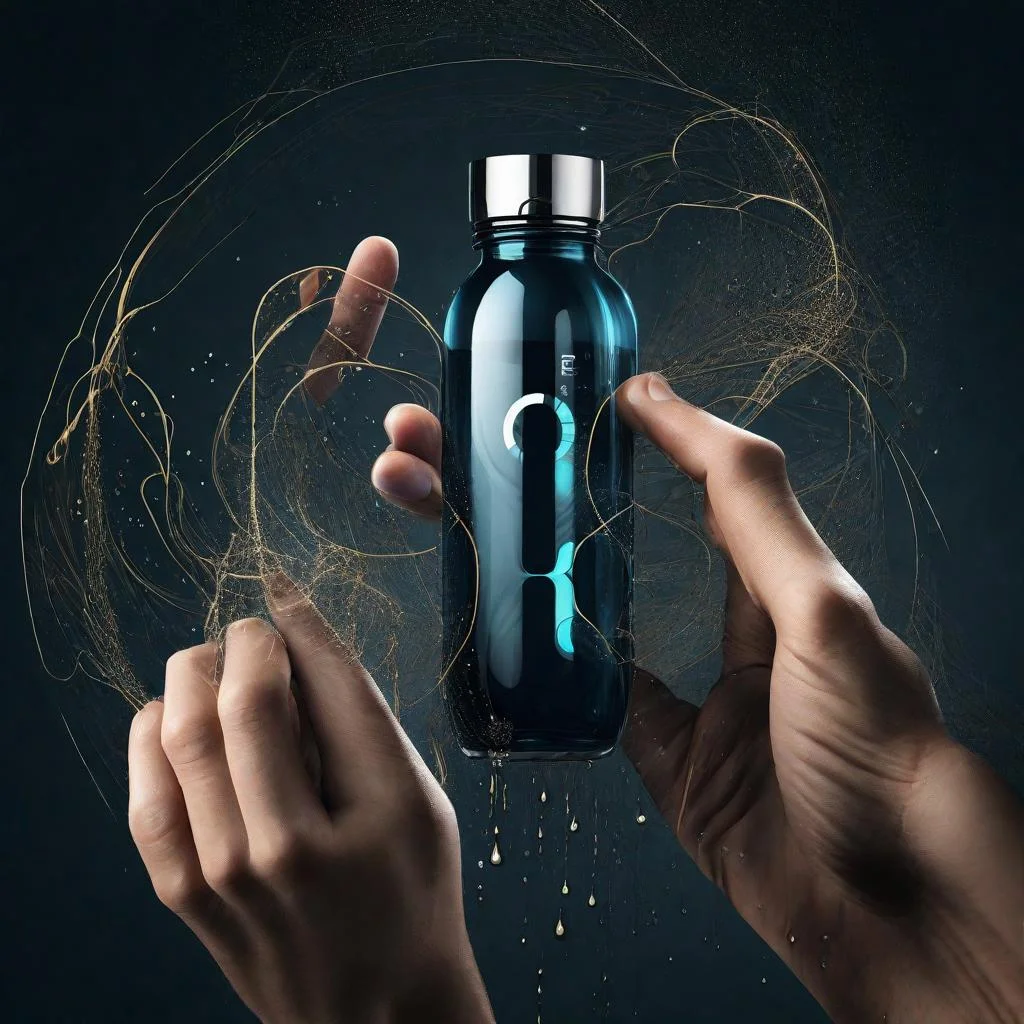Today We will know about 3 Health Concern of Reusing Plastic Bottles..
Reusable plastic bottles are favored for their convenience and eco-friendliness. However, ongoing debates about potential health risks tied to their reuse call for a deeper understanding to make informed choices.

Types of Plastic Bottles and Their Health Implications:
1. PET (Polyethylene Terephthalate) – Resin Code #1:
a. Frequently used for water, soda, or juice, these plastic bottles offer convenience but raise concerns about repeated use.
b. Lightweight and transparent, designed for single-use but can degrade upon reuse or exposure to heat, releasing harmful chemicals.
2.HDPE (High-Density Polyethylene) – Resin Code #2:
Known for durability, used in milk jugs, detergent, and some reusable water bottles, considered safer for reuse than PET.
3.PVC (Polyvinyl Chloride) – Resin Code #3:
Rarely used for water bottles due to potential chemical release with heat or prolonged use, posing risks to human health.
4.LDPE (Low-Density Polyethylene) – Resin Code #4:
Flexible and commonly used in plastic bags, considered safe, yet long-term exposure to specific chemicals may pose risks.
5.PP (Polypropylene) – Resin Code #5:
Known for heat resistance, used in food containers, and considered safe; however, extreme heat should be avoided.
6. PS (Polystyrene) – Resin Code #6:
Present in disposable cups, plates, and take-out containers, might pose health risks when used with hot food or drinks.
7. Other/Unknown – Resin Code #7:
Encompasses various plastics, including polycarbonate (including BPA), indicating potential health risks in bottles labeled #7.
Health Concerns and Safety Tips:
- Chemical Leaching: Repeated use and heat exposure in plastic bottles can release harmful substances like BPA and phthalates.
- Bacterial Contamination: Poor cleaning or storage can lead to bacterial growth, impacting health.
- Microplastic Ingestion: Degraded bottles can result in the consumption of microplastics, with unknown health effects.
Safety Practices for Reusing Plastic Water Bottles:
- Choose Quality Bottles: Opt for durable materials like HDPE or BPA-free plastics for reuse.
- Thorough Cleaning: Regularly wash bottles with hot, soapy water and ensure they dry completely to avoid bacterial growth.
- Avoid Extreme Temperatures: Shield bottles from excessive heat to prevent faster breakdown and chemical release.
- Inspect Bottle Condition: Monitor bottles for signs of wear or damage indicating potential degradation.
Exploring Alternatives:
Considering stainless steel, glass, or BPA-free reusable bottles can offer safer alternatives to plastic bottles.
Conclusion:
While reusable plastic bottles are convenient, understanding potential health risks is vital. Adhering to proper cleaning methods, opting for quality bottles, and considering alternative materials promote safer and sustainable hydration options.

